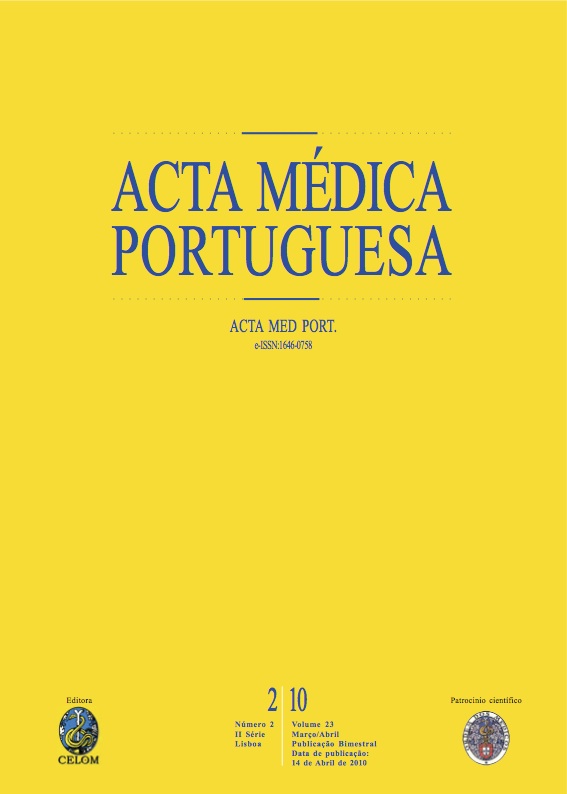Smoking in elderly in Brazilian homes for the aged.
DOI:
https://doi.org/10.20344/amp.619Abstract
To know the prevalence of elderly individuals (more than 60 years old), who are regular smokers, interned in Homes for the Aged in Distrito Federal.13 Homes for the Aged were studied in Distrito Federal. The identification of the smokers was made through the information given by the local nursing staff, added to the researcher observation and the confirmation provided by the elderly individuals themselves. They were asked about the tobacco usage, the intention to quit smoking in the next 6 months and self-evaluation about the harmful aspects that smoking causes to their health.The prevalence was 17,3% (11,2% men and 6,1%women) (p < 0,05). The average age was of 68,6 (+ or - 8,6) years old, varing from 60 to 94 years old. The number of individuals with the intention to quit smoking: 63,6% - 46 (71,9%) men and 17(48,6%) women (p <0,05). Self-evaluation about the harmful aspects that smoking causes to health: 58,6% of the individuals do think that smoking is harmful to their health (p < 0,05).There is a great number of elderly smokers who are interned in Homes for the Aged, and so the implementation of measures to control the smoking is necessary at these places.Downloads
Downloads
How to Cite
Issue
Section
License
All the articles published in the AMP are open access and comply with the requirements of funding agencies or academic institutions. The AMP is governed by the terms of the Creative Commons ‘Attribution – Non-Commercial Use - (CC-BY-NC)’ license, regarding the use by third parties.
It is the author’s responsibility to obtain approval for the reproduction of figures, tables, etc. from other publications.
Upon acceptance of an article for publication, the authors will be asked to complete the ICMJE “Copyright Liability and Copyright Sharing Statement “(http://www.actamedicaportuguesa.com/info/AMP-NormasPublicacao.pdf) and the “Declaration of Potential Conflicts of Interest” (http:// www.icmje.org/conflicts-of-interest). An e-mail will be sent to the corresponding author to acknowledge receipt of the manuscript.
After publication, the authors are authorised to make their articles available in repositories of their institutions of origin, as long as they always mention where they were published and according to the Creative Commons license.









